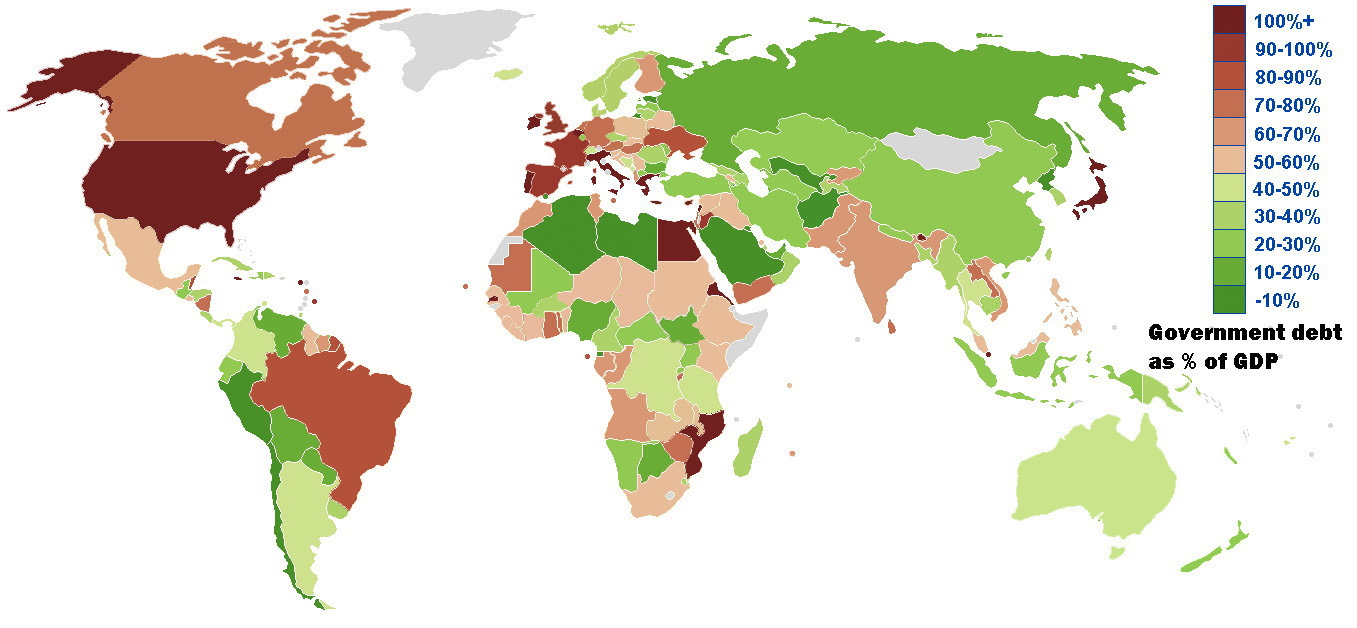mistermack wrote:Brian Peacock wrote:
No, I said that public sector spending has the effect of being an economic multiplier, and that slashing public sector spending has acted as an economic depressant.
If it was that simple, everyone would be doing it. You're not the only financial genius.
In a less simple world, it only has a good effect, when the problem is purely one of sentiment.
By injecting a little you can perk up the mood, and get people trading confidently again.
At any other time, it's money wasted, because people see government money as easy money, and find ways to live well on it without doing anything for it.
Just as they did in Greece.
What happened in Greece, and to a lesser extent in Italy, is exactly what you are advocating.
We've see how Greece is doing. The Italy story hasn't begun to fully unravel yet, but it will.
They are all being falsely preserved at the moment, by the historic low interest rates. As we are in Britain. But we've used that airbag. You can't use it twice.
What's going to happen if interest rates have to rise? Things will get extremely un-cushy in this country, and around the world.
What economist call the Multiplier Effect is an empirical measure based on the observation that spending increases with income. It can be calculated by factoring in how much of the extra income is spent against how much is saved, allowing for the fact that everything spent contributes to someone else's income and everything that is saved is taken out of the money supply. You can find the equations online - they're quite straightforward. The point, duly ignored, is that government spending on essential services and infrastructure contributes to the overall income pot of those providing the services or building/managing infrastructure projects, which in turn drives spending, and thus this kind of government spending can be seen as an investment which contributes to an economic net gain.
The Tories big economic plan is to disinvest from public services and infrastructure and pass that responsibility to a contracted private sector - however, accompanying changes to employment regulations and, consequently, employment patterns, along with depressed economic conditions, means that the vast majority of people working in the public sector have seen their wages stagnate, and indeed since 2010
average UK wages have fallen to 1988 levels (PDF) as rising costs have massively outstripped wage growth. Any gains have been scooped up as private sector profit and taken out of circulation in the form of speculative investment, or hoarding as I call it. This is why the stock market is soaring while everybody else is feeling the pinch.
On the other side of the Tory economic equation are substantial cuts in personal taxes for the wealthy and for companies. Those who are already well off tend to save or invest their income boosting tax cut handouts(!(, thus taking money out of circulation, and while companies may reinvest some of their tax cut handout the majority of it is again being scooped up as profit, boosting executive pay (
up c.15% since 2010 while average wages fall in real terms), and distributed to shareholders to be speculatively invested again.
A millionaire who receives a 10% tax cut handout from the Chancellor can only buy so many extra pairs of chinos, can only have a certain number of expensive haircuts, can only take a certain number of extra holidays or redecorate their property a certain number of times. Much of that income boost is going to be taken out of the system in the form of savings or investments, such as growth trusts for their kids. A billionaire who gets a 10% tax cut handout is going to invest most of it, say by buying properties they cannot occupy, buying out a competitor or asset stripping another business, popping it into stocks and shares, or squirrelling it away off-shore so nobody even knows how much they really have. Sure, if you're at the level of income of a Russian oligarch you can buy a decommissioned aircraft carrier and fit it out as a floating palace, and the refitters, suppliers and the crew all get an income which they can spend, somewhere, but the majority of your income remains safely locked out of circulation - and after a point it'll even grow faster than you could ever spend it.
So, don't buy the hype about how public spending is bad for the economy. What's bad for the economy is an unbalanced system which takes money out of circulations and depresses the economy. The Multiplier Effect is a sound economic principle, but so is the Reverse or Negative Multiplier Effect. At the moment Tory policies are institutionalising such a reverse multiplier, that is; using structural measures which are adding to the rate of income growth for the most wealthy, like those fine upstanding members in the Cabinet and the people who donate to their political party, to be taken out of circulation and in turn be passed on to their dependants so that the next generation of multi-millionaires can carry on from where their progenitors left off.
Your error is in thinking that I'm making a party political point when in fact I'm making an economic one, albeit one with potentially dire political and social consequences, as well disturbing economic consequences for the vast majority of us who don't even consider ourselves among the economic dregs - well, at least not yet anyway.


